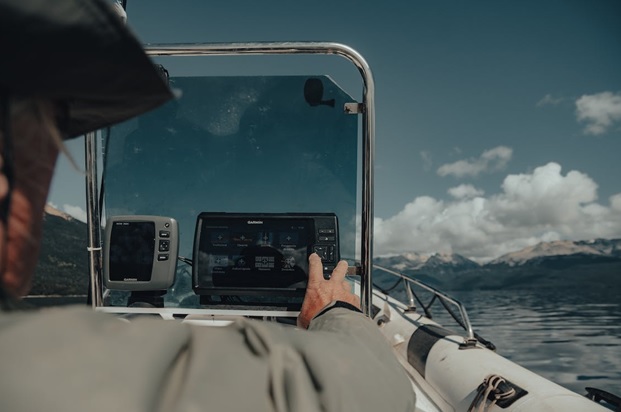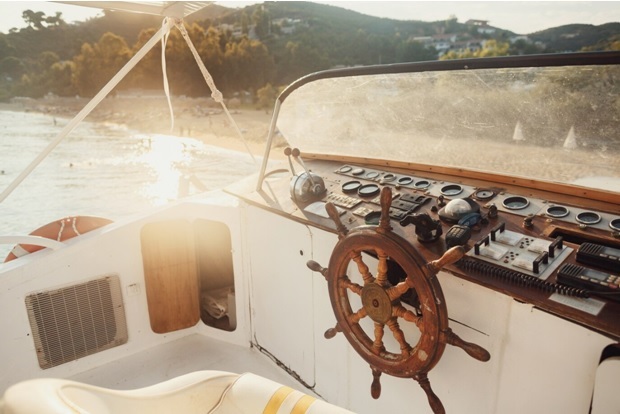Marine Electrical Cable Types: Choosing the Right One for Your Boat
25th Oct 2023
When it comes to marine electrical cables, there's no one-size-fits-all solution. Boats of different sizes, types, and functions have distinct electrical needs, and choosing the right cable is crucial for safety, performance, and longevity.
Imagine this: you're out on the open water, enjoying the gentle rocking of your boat as you soak up the sun. But have you ever wondered what's happening beneath the surface? Your boat's electrical system is hard at work, ensuring everything from navigation lights to your onboard entertainment runs smoothly. At the heart of this system are marine electrical cables that carry your boat’s power.
In this article, we'll explore two common types of marine electrical cables: 16-10 gauge UL approved marine cables and 8-4/0 gauge UL approved marine cables, so that by the end of this read, you'll have a clear understanding of which cable type suits your boat's requirements.
16-10 Gauge UL Approved Marine Cables
Versatile and Reliable
The 16-10 gauge UL approved marine cables are like the multitools of marine electrical cables. They’re versatile, reliable, and suitable for a wide range of applications on different boat sizes. This cable type is often used for smaller boats, like fishing boats, pontoons, and personal watercraft.
Where They Shine
- Lighting: Whether it's navigation lights, cabin lighting, or deck illumination, the 16-10 gauge cable can handle the load, providing power to keep your boat safely lit during nighttime excursions.
- Basic Electronics: For boats with simple electronics like GPS units, fishfinders, and radios, this cable type is more than capable of delivering the necessary power.
- Small Appliances: If you have small appliances on board, such as a refrigerator or a small TV, the 16-10 gauge cable can ensure they operate without a hitch.
- The Takeaway: If you have a smaller boat with basic electrical needs, the 16-10 gauge UL approved marine cable is your reliable companion, ensuring essential functions and safety.

8-4/0 Gauge UL Approved Marine Cables
Powerhouses for Larger Vessels
Imagine you're captaining a larger vessel, like a yacht or a commercial fishing boat. The 8-4/0 gauge UL approved marine cables are the powerhouses you need to ensure everything runs smoothly on a grand scale. These cables are designed to carry heavy loads, making them ideal for boats with high-power requirements.
Applications that Demand Power
- High-Powered Electronics: If your boat boasts an array of advanced electronics, including radar systems, satellite communication, or complex entertainment systems, these cables can handle the substantial power demands.
- Thrusters and Winches: Larger vessels often require powerful thrusters and winches for docking and heavy lifting. The 8-4/0 gauge cables provide the muscle needed to operate these essential components.
- Air Conditioning and Heating: Comfort is key on larger boats, and these cables ensure your onboard climate control systems work flawlessly.
The Takeaway: If you're at the helm of a larger vessel with an array of power-hungry systems, the 8-4/0 gauge UL approved marine cables are your go-to choice, ensuring that every electronic and mechanical aspect of your boat operates without a hitch.
Cable Sizing: Choosing the Right Fit
Selecting the correct cable size is crucial for the safe and efficient operation of your boat's electrical system. Too small a cable can lead to voltage drops, overheating, and even electrical fires, while oversized cables may be wasteful and costly. Here's how to determine the appropriate cable size:
- Calculate Electrical Load: Begin by calculating the total electrical load your boat's system will draw. This includes lighting, navigation equipment, appliances, and any additional accessories you plan to install.
- Voltage Drop Consideration: Keep in mind that voltage drop should be minimal. To calculate voltage drop, consider the cable length and the acceptable percentage of voltage drop based on your boat's voltage system (usually 12V or 24V).
- Consult a Cable Sizing Chart: There are cable sizing charts available from standards organizations like the American Boat and Yacht Council (ABYC). These charts provide recommendations based on your boat's electrical load and voltage drop limits.
- Consider Future Expansion: Think about potential future electrical additions to your boat. It's often wise to size your cables slightly larger than your current needs to accommodate future upgrades without rewiring.
- Seek Professional Advice: If you're unsure about cable sizing, don't hesitate to consult a marine electrician or refer to the ABYC standards for guidance. Getting it right at the outset will save you headaches and expenses down the line.
Troubleshooting: Navigating Electrical Issues
Electrical issues can sometimes arise on boats due to various factors, including wear, environmental conditions, or component failures. Knowing how to troubleshoot common problems can save you time and ensure your safety. Here's a basic guide:
- Check Connections: Start by inspecting all electrical connections. Loose or corroded connections are a common cause of electrical problems.
- Circuit Breakers and Fuses: Examine circuit breakers and fuses in your boat's electrical panel. A tripped breaker or a blown fuse can disrupt electrical flow.
- Battery Health: Verify the condition of your boat's batteries. Weak or damaged batteries can lead to electrical issues.
- Visual Inspections: Physically inspect cables, wires, and components for visible damage, such as fraying, burning, or corrosion.
- Use a Multimeter: A multimeter can help diagnose electrical issues by measuring voltage, current, and resistance at various points in your electrical system.
- Seek Professional Help: If you're unable to identify or resolve the issue, or if it involves complex components like inverters or generators, consult a qualified marine electrician. Attempting to fix intricate problems without expertise can be dangerous.
By following these guidelines for cable sizing, maintenance, and troubleshooting, boat owners can ensure their marine electrical cables remain reliable and their electrical systems operate smoothly during their maritime adventures.

Empowering Your Boating Experience
As a boat owner, ensuring the safety, performance, and comfort of your vessel is vital. Your choice of marine electrical cables plays a critical role in achieving these goals. Whether you're sailing on a smaller craft or commanding a larger vessel, selecting the right cable type can make all the difference.
So, when it comes to marine electrical cables, it's not just about wires and connectors; it's about empowering your boating experience. Make the informed choice based on your boat's specific needs, knowing that your boat's electrical system is in good hands.
At EWCSwire, we offer a range of high-quality options, including 16-10 gauge UL approved marine cables and 8-4/0 gauge UL approved marine cables, designed to meet the unique demands of different boats. Trust us to keep your boat powered, safe, and ready for adventure on the water.

